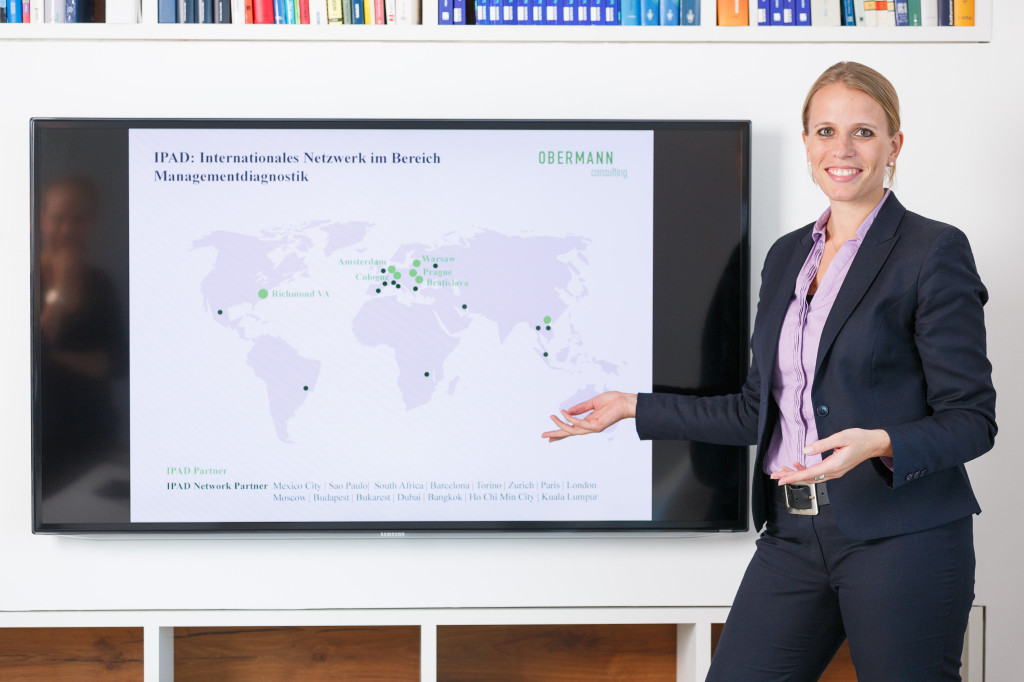Assessment Center in China – What are the differences?
Kai-guang Liang is the Managing Director of the IPAD branch in Shanghai, China. He has operated a consulting practice for seven years. He works for multinational companies such as Sanofi-Aventis, AstraZeneca, Merck, Akzo Nobel, TNT, Honeywell, and Alcatel-Lucent, as well as for local Chinese corporations such as Shenzhen Development Bank and BYD. Kai-guang Liang completed a master’s degree in China prior to studying in the United States, where he received his Ph.D. in Industrial Organizational Psychology. This IPAD partner has its office in downtown Shanghai. His team comprises 15 people, of which five are senior consultants.
Q: To what extent are assessment centers used in China today?
Kai-guang Liang: Assessment centers have become very popular in China, and the method is very well accepted in Chinese society today. There is a long history of civil service examination usage in China, and assessment centers are an extension of that concept. Many of the top 100 Chinese companies use some version of the assessment center method, with various combinations of elements, including psychological tests, simulations, and structured interviews. However, most of our clients are multinationals who are looking for assessments to be conducted in the local language, typically as individual executive-level assessments. I have to admit that the term „assessment center“ is often misused in Chinese companies. They may use only two exercises (usually in-basket and leaderless group discussion) and call it an assessment center.
Q: How are assessment centers typically used in China?
Kai-guang Liang: For local companies, primarily for selection decision making. They are rarely used for developmental purposes in local companies. However, this developmental application is growing in popularity. The large multinationals use assessment centers for both selection and development. Some of the assessment center applications in China are very large scale. One of our clients recently ran 200 participants through at one time.
Q: What does a typical AC look like in China?
Kai-guang Liang: Most of our assessment centers are one day in length and include several simulations and psychological tests, as well as a competency based bio-data survey, which is followed by a 2-hour structured interview. The simulations include a business case study and in-basket exercise, a meeting with a direct report and a role play involving a boss meeting.
Q: What is a role play involving a boss meeting?
Kai-guang Liang: The candidate is given a lot of material on a simulated company and then asked to present a plan to the CEO. The CEO then challenges the candidate with questions, such as „How would you address the gaps?“ This has to do with strategic thinking, managing execution as well as business acumen. As an example, can the candidate show any significant contribution to the shaping and implementation of the company’s China strategy and tactics? can the candidate spell out details at the implementation level?
Q: What types of psychological tests are you using in your assessment center programs?
Kai-guang Liang: We use the Work Behavior Inventory (WBI), which was originally developed in the US. We have translated it into Chinese and validated it on the local population.
Integrity: most important dimension in assessment centers
Q: What competencies do you typically evaluate in your assessment centers?
Kai-guang Liang: First we classify all competencies under one of three major headings, which we call TOPS. These include task/outcome management, people management and self management. The specific competencies we measure include strategic thinking, business acumen, delighting customers, change management, people management, communication, teamwork, integrity and learning agility.
Q: That looks much like a Western assessment center, except for integrity. How would you describe that?
Kai-guang Liang: Integrity is maybe the most important dimension. In our culture we say, if you want to govern the country in order, first you have to achieve a harmonious family. Before that you have to cultivate individual moral character or integrity. This means before you build a team and run a company, you have to manage yourself. Integrity means that you speak the truth, you are fair, you serve the company before yourself, and you do not take advantage of situations for your personal benefit. Equally important are values such as maturity, adaptability and learning agility.
Q: How do you go about evaluating integrity?
A: This plays an important role within the interview. Suppose you are currently a GM in another company and you are a candidate for another GM job in a new firm. If you say you can join the new employer in one week, then this should be a red flag of integrity. This might mean you are not fulfil duty to the previous employer because one week is usually not enough for a GM to transfer their duties to their successor. Or this might mean you have already resigned or even been fired from the GM job and you are not telling the truth. So we might ask, „If we offer you the job, could you start in one week?“ We might also ask, „Have you ever had conflicts with your boss?“ If the answer is no, we would conclude that he is not telling the truth.
We also include several self-assessment components during the whole assessment process, including self ratings on competency scales, self evaluation on their development needs in the structured interview, and self evaluation on their simulation exercises. We can see if the candidate is willing to reveal their true weaknesses by comparing the results of self-assessment with those of assessors.

Culture differences influence assessment methodology
Q: On the surface, the competencies appear to be comparable to those measured in Western assessment centers. But aren’t there cultural differences?
Kai-guang Liang: There are. Even though I lived in the US for more than seven years, I would never assess an expat without the support of a Western assessor. In our culture, building up trust is an important thing. In a role play you cannot go straight to the point. As a new manager you might say to your direct report that you need to learn from him, you have to ask if he might help. You cannot criticise him openly.
Another difference would be that in Western countries everyone expresses different opinions. In China this is different, especially with regard to your boss. If you disagree you keep silent.
Because your social network is so important in China, gift giving is not seen as a bribe, like it would be in the US.
Q: In a simulated appraisal interview wouldn’t you put the critical matters on the table?
Kai-guang Liang: Well, the direct report should never lose face and the relationship building is important. However, after setting the groundwork, you need to talk about the subject matter. In the language of assessment centers, I would say the dimensions are similar, but the behavioural anchors make the difference.
Another thing is the role players. In China, you would talk differently to a younger person than to a senior manager. Therefore we have to use very senior role players as a boss who can build up trust.
China: Respect and social status are important
Q: The Western stereotype is that Chinese managers change jobs for small salary increases? Is there any validity to that?
Kai-guang Liang: I am not quite sure if this is really true. Much more important is the social comparison factor including job status and title. China is a country with high power distance, and this must be reflected in your title. If you work in the headquarters office in a large multi-unit organization, and you reach a director level but don’t have an equivalent title, then you may not get enough respect when you interact with your sub-branch office colleagues who have such titles as General Managers or Presidents. You may also lose face when you interact with your former classmates who own higher titles than yours.
I have one client where they now have six HR directors because they wanted to retain all of them. They had to solve this problem by installing a new position of HR VP. If your title is just „manager,“ that counts less. However, this creates a lot of problems, and many companies give senior titles to people who are too young, when in reality their status is lower. This creates conflicts when the multinational company has different people with the same titles, but meaning different things.
Q: How is feedback handled in a typical assessment center in China?
Kai-guang Liang: Because of the focus on using assessment centers for selection purposes rather than development, feedback is rarely given to the candidates. We have a long tradition of giving examinations. This means that everything has to be standardized. Since nobody questions the results, as candidate you just have to accept it. This means that nobody really cares about the content of the examination, as long as it’s standardized. The concept of validation is still quite new. To be frank, if you have poor quality in the components of the testing procedure, you are not able to provide meaningful feedback. With well designed and high-fidelity assessments that has changed. When assessment centers are used for development purposes, we do provide in depth-feedback.
Q: You lived in the US for seven years. Are there some features of typical Western assessment centers that you would not employ in China?
Kai-guang Liang: Yes, many scenarios are not relevant here. When I worked for Western consulting companies I found lot of exercise content covering discrimination against minority groups. That is not relevant in China.
A real practical difference is securityÖ
Q: What do you mean by security?
Kai-guang Liang: If you return from an assessment, your friends and colleagues would expect that you share all that you know, otherwise you aren’t their friend anymore. Relationships with your wider family are much more important. This means that we have to change the scenario content quite often.
Q: How would you describe the assessment center market in China today?
Kai-guang Liang: In contrast to Western countries, China is growing rapidly –this year about 8%. The financial industry is performing very well. Sanofi-Aventis had about 40% growth in their sales revenue last year, which has now 2500 sales reps in their field sales force. This requires a lot of selection. The major international consultants are working in China. They bring their Western testing material, hire and train local consultants, and let them conduct the standard cases. However, our expertise is that we can tailor the AC simulations to the local culture and business environments. We implement real job challenges and do not use off-the-shelf cases from abroad.
IPAD is the international partnership of assessment and development. IPAD serves international operating companies seeking assessment/development programs to evaluate and develop their future leaders. IPAD is present in countries like the US, China and different European regions, such as Germany, the Netherlands, Poland, Slovakia. The partnership includes over 50 psychological consultants specializing in assessment centers and management audits.
Mehr zu der Forschung rund um Assessment:
- Das Obermann Buch Assessment Center zum Thema
- Das aktuelle Buch zum Thema Interviewführung mit allem wissenschaftlichem Hintergrund
- 2020 / 2011 Stand der Wissenschaft zu Remote Interviews und Assessments
- Validierung: Wissenschaftlich nachgewiesene Treiber für AC-Qualität
- Studie: Was sind relevante Führungsmotive?
- Die Postkorb-Übung – noch aktuell?
- Studie: Passende Anzahl von Beobachtern im AC
- Benchmarkstudie Forum Assessment zur AC-Praxis in Deutschland
- Modernes Beobachtertraining im AC
- Psychologie: Was ist eigentlich Potenzial?
- 25 Jahre Lernpotenzial-Assessment
